The holy month of Ramadan is coming, Muslims are also fasting.
Muslims fast as an obligation that can encourage self-discipline, patience, and empathy for the less fortunate.
However, for fitness enthusiasts, sportsmen or hard workers, Ramadan can be a challenge to their schedule, as fasting has the potential to impact energy levels and post-workout recovery.
However, good nutrition at night, between Iftar and Suhoor, is very important for physical performance. So that they can still maximize their energy levels during this Ramadan season, although of course with an adjusting schedule.
Also Read: Be Careful of the Trap of Deploying Peacekeeping Forces to Gaza
Here are at least five nutritional foods to stay healthy during Ramadan fasting.
Consumption of sufficient complex carbohydrates at dawn. Complex carbohydrates, such as whole grains, fruits and vegetables, are a sustainable source of energy for the body.
Eating these foods at dawn can help provide energy throughout the day, because food is digested slowly.
These carbs also help replenish glycogen – a major source of energy stored primarily in your liver and muscles – which is depleted during fasting.
Also Read: The Forty-Four-Days of Glory: Azerbaijan’s Struggle for Justice and Peace
Include lean protein. Protein is important for maintaining and repairing muscles, especially for those who exercise regularly.
During suhoor, try to include sources of protein such as lean meat, fish, eggs, and milk.
It is a high-quality protein source that provides all the essential amino acids the body needs.
Consuming protein at dawn can also help reduce muscle breakdown during the day, as well as support their repair and growth.
Also Read: Palestine Solidarity Month: A Collective Movement for Al-Aqsa and Palestine’s Freedom
Drink enough to avoid getting hydrated during the fast. Dehydration or lack of fluids in the body, can affect fitness performance. This can have an impact on health risks during fasting.
Be sure to drink plenty of water and other hydration fluids at night.
Hydration fluids such as isotonic sports drinks, or coconut water, can replace lost fluids and minerals. This is especially so if you plan to keep exercising or doing a lot of physical activity during the day during your fast.
This mineral water/liquid will help maintain energy levels and prevent fatigue.
Also Read: Hassan al-Turabi: A Controversial Thinker from Sudan
Avoid diuretic drinks that can increase urine output, such as caffeine (including coffee) and tea.
Urine that is concentrated and minimal, indicates that our body is most likely dehydrated.
Consume a balanced iftar meal
Dinner (iftar) is the main meal during the day during Ramadan which is shifted to the evening. Then the diet should be focused on rehydrating and replenishing the nutrients lost during the day.
Make sure the food you eat contains enough carbohydrates, protein and healthy fats, to replenish glycogen stores and support muscle recovery.
Also Read: Who Exactly is the RSF Group Shaking Sudan?
Healthy fats play an important role in maintaining good health.
These healthy fats can be found in a variety of foods, including nuts, seeds, avocados, fatty fish, olive oil, and coconut oil.
As well as replenishing lost nutrients, iftar meals should include hydrating foods to help the body rehydrate after a long day of fasting.
Soups, fruits, and vegetables are especially good sources. Additionally, dates are highly nutritious and provide a good source of quick energy due to their high carbohydrate content, making them an ideal food for breaking the fast.
Also Read: The Two-State Solution (Palestine–Israel) in Historical Perspective
Avoid overeating when breaking your fast. To optimize sports performance, it is important to consume the right amount of nutrients during iftar without overeating. Overeating can actually cause discomfort and have a negative impact on fitness.
To maintain a balance of food with appropriate portions, it is recommended to eat slowly, and pause during meals or gradually throughout the night, to avoid stomach discomfort.
Hopefully by maintaining healthy and nutritious food, it can help strengthen our Ramadan fasting. Amen. (T/RE1)
Source : freemalaysiatoday.com
Also Read: Enchanted by K-Dramas, Dragged into Slander: Time for Muslims to Rise!
Mi’raj News Agency (MINA)






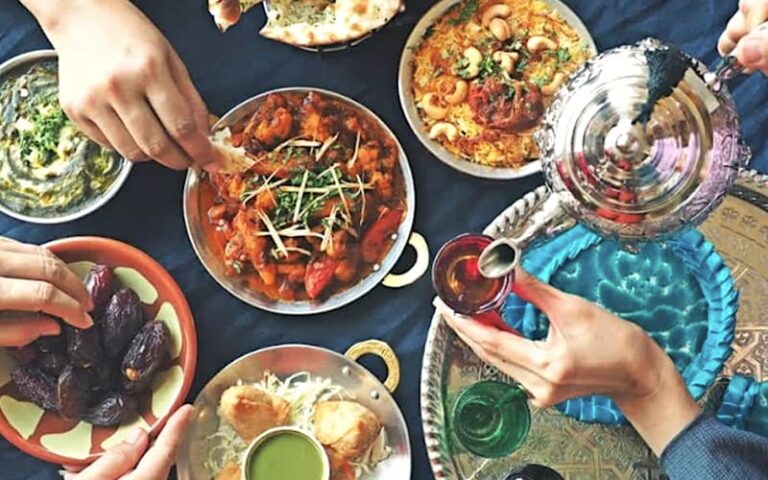




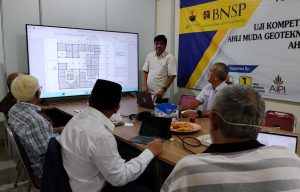

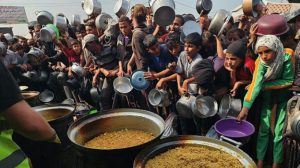


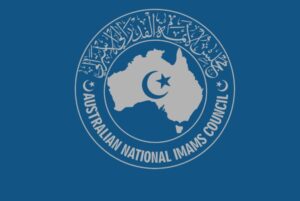


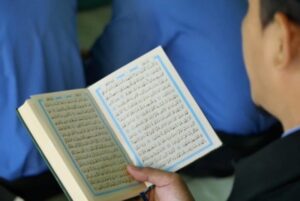
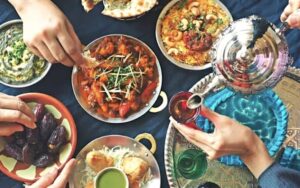














 Mina Indonesia
Mina Indonesia Mina Arabic
Mina Arabic